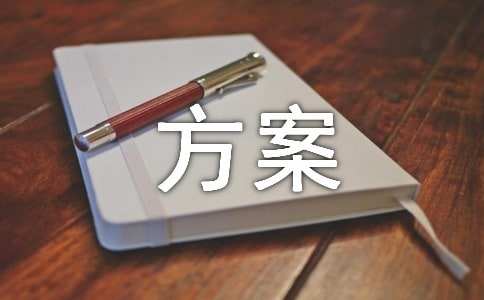初中英语教师年度考核个人总结 本文关键词:英语教师,年度考核,初中
初中英语教师年度考核个人总结 本文简介:初中英语教师年度考核个人总结本人现从德能勤绩四个方面,对一学年以来的教育教学工作总结如下:一、政治思想方面:自参加工作以来,我一直拥护中国共产党的领导,热爱社会主义国家,忠诚党的教育事业。我热爱学校,有良好的师德,遵纪守法,自觉遵守《中小学教师职业道德规范》,严格要求自己并认真学习“十八大精神”及有
初中英语教师年度考核个人总结 本文内容:
初中英语教师年度考核个人总结
本人现从德能勤绩四个方面,对一学年以来的教育教学工作总结如下:
一、政治思想方面:
自参加工作以来,我一直拥护中国共产党的领导,热爱社会主义国家,忠诚党的教育事业。我热爱学校,有良好的师德,遵纪守法,自觉遵守《中小学教师职业道德规范》,严格要求自己并认真学习“十八大精神”及有关教育教学理论。我不但注重平时的政治理论学习,还注意从书本中汲取营养,及时更新教育理念,积极参加校本培训和新课程培训,并做了大量的政治笔记与理论笔记。我关心爱护学生,教书育人,使学生在德、智、体、美、劳等方面得到全面发展。我努力做好本职工作,并在完成本职工作的前提下,结合工作需要,虚心请教,努力进取,不断提高自己的教育教学水平。
二、教育教学工作方面:
教师是学生学习的促进者,学习能力的培养者,更是学生人生的引路人。教师的任务是教书育人,但不能只做一个“教书匠”,更要做个“教育者”。具体做法如下:1、课前认真钻研教材,备深备透每一节课。2.组织好课堂教学,关注全体学生,注意信息反馈,调动学生的注意力,使其保持相对稳定性。同时,激发学生的情感,使他们产生愉悦的心境,创造良好的课堂气氛。课堂提问面向全体学生,注意引发学生学英语的兴趣,课堂上说练结合,课外作业少而精,减轻学生的学业负担。
3.利用课余时间做好对学生学习的辅导和帮助工作,尤其关注后进生的转化工作。对后进生努力做到从友善开始,比如,多做思想工作,从生活上关心他。从赞美着手,所有的人都渴望得到别人的理解和尊重,所以,和差生交谈时,对他的处境、想法表示深刻的理解和尊重,还有在批评学生之前,先谈谈自己工作的不足。
4.热爱学生,平等地对待每一个学生,让他们都感受到老师的关心,良好的师生关系促进了学生的学习。在教学工作中,我努力提高自己对学生的亲和力,与学生建立和睦友好的关系。我信奉“亲其师,方能信其道”。只有真正地关心学生、爱护学生,跟学生做朋友,心心相通,学生才会愿意接近你、亲近你,才会乐意地去学习你所任教的科目。在平时的教学工作中,我总是努力去做到这一点。
三、工作出勤方面:
我热爱自己的本职工作。,从不因为个人的私事耽误自己的工作。平时我积极参加教研组组织的各项教研活动、学校组织的例会,升旗仪式、课间操和各种工会活动。在本学年度,没有缺席、迟到、早退和病事假现象的发生,严格遵守了学校的各项规章制度。
四、取得的成绩
在本学年的工作中,我取得了一定的成绩,从本学年的每次月考和校际联赛考试成绩来看,我所教班级无论从平均分、及格人数和优生人数都在同年级中名列前茅。
当然
“金无足赤,人无完人“,在教学工作中难免有缺陷。例如:对部分学困生转化工作还不够成功,;班级管理经验还不够成熟等,而这些问题,希望在以后的教育教学工作中不断地解决。
2
篇2:初中英语八种时态归纳总结表格版
初中英语八种时态归纳总结表格版 本文关键词:时态,归纳,八种,表格,初中英语
初中英语八种时态归纳总结表格版 本文简介:初中英语八种时态归纳时态意义时间状语结构及变化一般现在时经常、反复发生的动作或行为及现在的某种状况。always,usually,often,sometimes,everyweek(day,year,month…),Onceaweek,OnSundays①be动词:肯定:主语+be(am/is/ar
初中英语八种时态归纳总结表格版 本文内容:
初中英语八种时态归纳
时态
意义
时间状语
结构及变化
一
般
现
在
时
经常、反复发生的动作或行为及现在的某种状况。
always,usually,often,sometimes,every
week
(day,year,month…),Once
a
week,On
Sundays
①be动词:
肯定:主语+
be(am/
is
/are
)+
其他
否定:主语+
am/is/are
+
not
+
其他
问:Be
(am/
is
are
)+
主语
+
其他?
答:Yes
…be
./
No,…be
not
.
特殊:Wh…
+
Be
的疑问句?
②行为动词:
肯定:主语+
do(does)
+
其他
否定:主语
+
don
t
/
doesn’t
+
动原
问句:Do
/Does
+
主语
+
动原?
答:Yes…do/does
./
No,…
don’tdoesn’t.
特殊:Wh…
+
do
/does
的疑问句?
一
般
过
去
时
过去某个时间里发生的动作或状态;
过去习惯性、经常性的动作、行为。
ago,yesterday,long
long
ago,the
day
before
yesterday,last
week
(year,night,month…),in1989,just
now,at
the
age
of
5,one
day,once
upon
a
time,①be动词:
肯定:主语+
(was
/were)+
其他
否定:主语+
wasn’t/were
not
+
其他
问:Was/Were
+
主语
+
其他?
答:Yes
…be
./
No,…be
not
.
特殊:Wh…
+
was/
were的疑问句?
②行为动词:
肯定:主语+
动词过去式
+
其他
否定:主语
+
did
+
动原
问句:Did
+
主语
+
动原?
答:Yes…did.
/
No,…
didn’t.
特殊:Wh…
+did的疑问句?
一
般
将
来
时
表示将要发生的动作或存在的状态及打算、计划或准备做某事。
tomorrow,by…,next
day
(week,month,year…),soon,in
a
few
minutes,the
day
after
tomorrow
基本结构
be
going
to
+
动原
肯定:主语+am/is/are/going
to
+
do;
否:主语+
am
/is
/are
+
not
going
to
do
问:Be
+
主语
+going
to
do……?
答:Yes
…be
./
No,…be
not
特殊:Wh…+
Be主语
going
to
do的疑问句?
will/shall
+do
.
肯定:主语+will
/shall
+
动词原形
否定:主语+will
not
(won’t)
+
动词原形
问句:
Will
/Shall主语+
动词原形
?
答句:Yes
…will
.
/
No,…won’t
.
特殊:Wh…
+will的疑问句?
现在
进行时
表示现阶段或说话时正在进行的动作及行为。
now,look,listen
at
this
time,these
days,基本结构:
肯定:主语am/is/are
+doing
否定:主语am/is/are+
not
+
doing.
问:
am/is/are主语
+doing
?
答:Yes
…be
./
No,…be
not
特殊:Wh…+
Be主语
+
疑问句?
过去
进行时
表示过去某段时间或某一时刻正在发生或进行的行为或动作
At
this
time
yesterday,at
that
time
,
或when引导的一般过去时的时间状语
基本结构:
肯定:主语was
/were
+doing
否定:主语was
/were
not
+
doing.
问:Was
/Were主语
+doing
?
答:Yes
…was/
were
./
No,…was
/were
not
特殊:Wh…+
Be主语
+
疑问句?
现在完成时
过去发生或已经完成的动作对现在造成的影响或结果,
或从过去已经开始,持续到现在的动作或状态。
recently,lately,since+
时间点
for+
时间段。
=(since
+
时间点ago)
in
the
past
few
years,基本结构:
肯定:主语+
have/has+
done(动词的过去分词)
否定:主语have/has+
not+
done.
(动词的过去分词)
问句:主语+have/
has
+
done(动词的过去分词)?
答:Yes
…have
/has
./
No,…have/has
not
.
特殊:Wh…+
have/has主语
+
疑问句?
注意:当与一段时间连用时,动词要改为延续性动词。
have
bought
=have
been
had
have
borrow
=
have
kept
have
died
=
have
been
dead
…………
have
been
to
:
have
gone
to
:
have
been
in
:
过去完成时
以过去某个时间为标准,在此以前发生的动作或行为,或在过去某动作之前完成的行为,即“过去的过去”
before,by
the
end
of
last
year
(term,month…);
过去时态的从句
基本结构:
肯定:主语+
had
+
done(动词的过去分词)
否定:主语had
not+
done.(动词的过去分词)
问句:主语+
had
+
done(动词的过去分词)?
答:Yes
…had./
No,…had
not
.
特殊:Wh…+had
主语
+
疑问句?
过去将来时
立足于过去某一时刻,从过去看将来,常用于宾语从句中
The
next
day
(morning,year…),the
following
month
(week…)
基本结构:
肯定:主语+
was/were
going
to
+
do;
否:主语+
was/were+
not
going
to
do
问:Be
+
主语
+going
to
do……?
答:Yes
…be
./
No,…be
not
特殊:Wh…+
Be主语
going
to
do的疑问句?
②would
+do
.
肯定:主语+
would
+
动词原形
否定:主语+
would
not
(wouldn’t)
+
动词原形
问句:Would
主语+
动词原形
?
答句:Yes
…would.
/
No,…wouldn’t
.
特殊:Wh…
+would
的疑问句?
3
篇3:初三英语unit1-7总结复习提纲课
初三英语unit1-7总结复习提纲课 本文关键词:提纲,英语,复习,unit1
初三英语unit1-7总结复习提纲课 本文简介:2014年九年级人教版英语各单元重点短语及句型一一致七单元重点词形变化----见课本单词表动词变名词名词1pronouncesuggestexamineintroduceproductexpress名词2二各单元写作可能用到的句型1dosthbydoing2The+比较级the+比较级3sothat
初三英语unit1-7总结复习提纲课 本文内容:
2014年九年级人教版英语各单元重点短语及句型
一
一致七单元重点词形变化----见课本单词表
动词变名词名词1
pronounce
suggest
examine
introduce
product
express
名词2
二
各单元写作可能用到的句型
1
do
sth
by
doing
2
The
+比较级
the
+
比较级
3
so
that句型
4
宾语从句
5
used
to
do句型
6
be
made句型
7
被动语态句型
三
各单元重要知识点
Unit1
How
can
we
become
good
learners?
一.重点短语
1.
ask
sb.
for
help
请求某人的帮助
be
patient
耐心点儿
2.improve
one’
s
speaking
skills
提髙某人说的能力
3.
spoken
English=oral
English英语口语
4.
make
word
cards
制作单词卡片
5.
listen
to
tapes
听磁带
6.
the
secret
to
language
learning
语言学习的诀窍
7.
be
afraid
to
do
sth.不敢
做某事
8.
fall
in
love
with
.
爱上
9.
body
language
肢体语言
10.
take
notes
记笔记
11.
make
mistakes
in
grammar
犯语法错误
12.
learning
habits
学习习惯
13.
have
sth.
in
common
有.共同点
14.
pay
attention
to
注意
15.
connect…with…把与联系起来
16.
write
down
key
words
摘抄重点词
17.
in
class
在课堂上
after
class
课后
18.
be
interested
in…
对.感兴趣
19.
do
sth.
on
one’s
own/by
oneself/alone
独立做某事
20.
worry
about
为.而担忧=be
worried
about
21.
depend
on=rely
on
依赖;取决于
二.重点句型
1.
What
about
doing
sth
?
例:What
about
listening
to
tapes?
2.
by的用法
a.
介词
prep.
(指交通等)乘;
例:The
man
came
by
bus.
那人是坐公共汽车来的。
They
went
to
Shanghai
by
plane.
他们坐飞机去上海。
b.
表示做某事的方式、方法
结构:by+V-ing
How
do
you
study
for
a
test?
I
study
by
making
word
cards.
3.
现在完成时态结构:have
done,
表示
例:Have
you
ever
studied
with
a
group?
5.
It’s
+adj+
(for
sb)
to
do
sth
It’s
too
hard
(for
me)
to
understand
spoken
English.
6.
The
more
you
read,the
faster
you’
ll
be.
你的阅读量越大,你的阅读速度就能提髙得越快。
7.
find
it
+
adj
+
to
do
sth
例:I
find
it
easy
to
learn
English.
8.
It’s
a
piece
of
cake.
小菜一碟/太容易了
三
语法
---动词的非谓语形式
1
doing
2
to
do
3
done
Unit
2
I
think
that
mooncakes
are
delicious!
一.重点短语
1.
the
Lantern
Festival
元宵节
2.
the
Dragon
Boat
Festival
端午节
3.
the
Water
Festival
泼水节
4.
eat
five
meals
a
day
一天吃五餐
5.
put
on
five
pounds
体重增加了五磅
lose
weight减肥
6.
in
two
weeks
两星期之后
7.
be
similar
to.
与.相似
8.
throw
water
at
each
other
互相泼水
9.
in
the
shape
of.
呈…的形状
10.
folk
stories民间传说故事
11.
lay
out摆开;布置
12.
the
story
of
Chang,e嫦娥的故事
13.
refuse
to
do
sth
拒绝做某事
14.
have
good
luck
in
the
new
year在新的一年里有好运气
15.
end
up最终成为;最后处于
end
up
with以…结束
16.
share
sth
with
sb
与…分享…
17.
as
a
result结果
18.
one
.
the
other.
(两者中)一个…另一个…
19.
care
about
关心
20.
dress
up
乔装打扮
21.
haunted
house
鬼屋
22.
play
a
trick
on
sb.捉弄某人
23.
give
out
分发
give
up放弃
24.
trick
or
treat
(万圣节用语)不给糖果就捣蛋
25.
light
candles
26.
the
importance
of…的重要性
27.
take
sb
around…=show
sb
around…带某人到处走走
28.
warn
sb
to
do
sth.警告某人做某事
warn
sb
not
to
do
sth警告某人不要做某事
29.
the
beginning
of
new
life
新生命的开始
30.
remind
sb
of
…
使某人回想起…
31.
promise
to
do
sth.承诺做某事
32.
treat
sb.
with.
用/以…对待某人
二.重点句型
1.
What
do/does+sb.
+
think
of
sth.
?
例:What
does
Wu
Yu
think
of
this
festival?
2.宾语从句(P55)
(复习直接引语和间接引语)
一.连词
a.陈述语序(that)
b.一般疑问句(if
或whether)
c.特殊疑问句(5w,1h)
二.陈述语序
三.时态
可跟that从句做宾语的动词:say,think,insist,wish,hope,demand,imagine,wonder,know,see,believe,agree,admit,deny,expect,explain,order,command,feel,dream,suggest,hear,mean,notice,prefer,request,require,propose,declare,report等
例:I
don’t
know
what
they
are
looking
for.
Could
you
tell
me
when
the
train
will
leave?
注意:当主句谓语动词是
think,believe,suppose,expect
等词,而宾语从句的意思是否定时,常把否定转移至主句表示。
例:I
don’t
think
it
is
right
for
him
to
treat
you
like
that.
注意:由whether,if
引导的宾语从句
由whether(if)引导的宾语从句,实际上是一般疑问句演变而来的,意思是“是否”。
例:I
wonder
whether(if)
they
will
come
to
our
party.
注意:当宾语从句表示的是一个客观真理或者事实时,即使主句是过去时,从句也用一般现在时态。
例:The
teacher
told
us
that
light
travels
faster
than
sound.
3.感叹句结构(P56)
How+adj.
/adv.
+
主
+
谓!
What
(a/an)+名+
主
+
谓!
例:What
an
interesting
story
it
is!
How
tall
Yao
Ming
is!
练习
a.
将下列句子改为感叹句
It’s
a
nice
dress.
They
are
lovely
animals.
It’s
bad
weather.
Her
son
is
very
naughty
She
is
a
very
careful
student.
b.
用What,What
a,What
an,How
填空。
1.______
hot
the
weather
is!
2.
_____
hard
her
father
works!
3._____long
way
it
is
from
Guangdong
to
Paris!
4.______fine
day
it
was
yesterday!
5.______lovely
baby!
6._______beautiful
your
voice
is!
7.______
sad
news
he
told
us!
8.________happy
she
was
last
weekend!
9.________nice
the
garden
is!
10._______
happy
life
we
have!
11._______delicious
mooncakes!
Unit
3
could
you
please
tell
me
where
the
restrooms
are?
一.重点短语
1.
turn
left/right
向左/右转
2.
on
one’
s
left/right
在某人的左/右边
3.
go
along
Main
Street
沿着主大街走
4.
have
dinner
吃饭
5.go
to
the
third
floor
去三楼
6.
a
room
for
resting
休息室
7.
be
special
about
.
有……独特之处
8.
pardon
me
请再说一次
9.
come
on
过来;加油
10.
one
one’
s
way
to.
在去.的路上
11.
something
to
eat一些吃的东西
12.
hold
one’
s
hand
抓住某人的手
13.
mail(send)
a
letter
寄信
14.
pass
by
路过
15.
a
rock
band
摇滚乐队
16.
in
the
shopping
center
在购物中心
17.
in
some
situations
在某些场合
18.
park
one’
s
car
停车
19.
an
underground
parking
lot地下停车库
20.
such
as
例如
21.
thank
sb.
for
doing
sth.
为…感谢某人
22.
look
forward
to…期盼…
23.
meet
sb.
for
the
first
time
第一次见到某人
24.
in
a
rush
to
do
sth.
仓促地做某事
25.
be
convenient
to
do
sth.
做某事很方便
二.重点句型
1.
not…until…
You
never
know
until
you
try
something.
2.
It
seems
(that)…
It
seems
a
rock
band
plays
there
every
evening.
3.
do
you
know.
例:Excuse
me,do
you
know
where
I
can
buy
some
medicine?
Do
you
know
when
the
bookstore
closes
today?
4.
Could
you
please
tell
me.
?
Could
you
please
tell
me
how
to
get
to
the
post
office?
5.sb.
suggest+
从句(虚拟语气:should+V
)
例:The
clerk
suggests
they
go
to
the
museum.
6.take的用法
①
take
some
food
take
some
medicine
(=have吃,喝)
②
take
notes做笔记
③
take
one’s
temperature
(
测量
)
④
It
takes
sb
some
time/money
to
do
something
(
花费,需要
)
⑤
I’ll
take
this
coat.(=buy购买)
⑥
take
somebody
/
something
to
(
带领,拿去,取
)
⑦take
a
train
to
Chongqing
(
乘坐
)
⑧
take
off(
脱下)
3.
turn
的用法
turn
to
page
80
翻到
It
is
your
turn.轮到你了。
at
the
turning
在转弯处
turn
on/
off/
up/
down
关
turn
right/
left
at
the
first
turning
/crossing
Unit4
I
used
to
be
afraid
of
the
dark.
一.重点短语
1.
used
to
do过去常常做某事
be
used
to
doing
习惯于做某事
be
used
to
do
用来做事(被动语态)
2.
in
public公开地
3.
from
time
to
time时常,有时
4.
in
person
亲自
5.
deal
with处理
It’s
a
deal.就这么定了!
6.
look
after=take
care
of
照顾,照料
二.重点语法
1.
辨析:
used
to
do
sth.
过去常常做…
get/be
used
to
sth./doing
sth.
习惯于…
be
used
to
do
被用于做…(被动语态)
be
used
by
由(被)…使用(被动语态)
be
used
as
…
被当做…使用(被动语态)
be
used
for
doing
被用于做…(被动语态)
例:
I
used
to
go
to
work
by
bus.
Now
I
take
a
taxi.
He
used
to
be
a
problem
boy.
She
used
to
be
very
shy.
I’m
used
to
drinking
a
cup
of
water
after
meal.
He’s
been
used
to
living
in
the
dormitory.
A
hammer
is
used
to
drive
nails.
This
machine
is
used
to
clean
the
floor.
The
girl
is
being
used
as
a
servant
in
the
house.
A
knife
can
be
used
for
cutting
bread.
2)
afford(支付得起)的用法
afford
sth
买得起……
afford
to
do
sth
有足够的…去做…
例:His
mother
couldn’t
afford
to
pay
for
her
child’s
education.
They
did
not
consider
whether
they
could
afford
the
time
or
not.
We
can’t
afford
to
pay
such
a
price.
(such和so区别见P110)
3)
take
pride
in
sth/
sb
=
be
proud
of
sth/
sb
为…感到自豪
例:He
was
watching
me
and
take
pride
in
everything
good
I
do.
I
take
pride
in
my
child.
=I’m
proud
of
my
child.
注:He
take
pride
in
everything
good
I
do.
这是一个定语从句。省略了关系代词that。先行词为不定代词时,关系代词只能用that。
4)the+序数词+最高级+N
第几(大/长/高…)
One
of
the/形容词性物主代词+Ns
谓语用三单
例:He
is
now
one
of
the
best
students
in
his
class
One
of
my
best
friends
is
a
doctor.
One
of
his
most
expensive
pens
has
been
lost.
The
yellow
river
is
the
second
largest
river
in
china.
Mount
Qomolangma
is
the
first
highest
mountain
around
the
world.
练习:1.
He
used
to
(be)
poor,but
now
he
is
rich
and
he
can
afford
(buy)
the
most
expensive
car.
2.
Tom
takes
pride
his
son,because
he
climbed
the
(two)
(high)
mountain
successfully.
3.
She
is
used
to
(help)
anyone
that
gets
into
trouble.
One
of
the
(difficult)
things
(be)
to
believe
yourself.
4.——Hey,what
is
it
used
to
do?
——Well,it’s
used
(cut
)down
the
tree.
Unit5
What
are
the
shirts
made
of?
1.重点短语
1.be
made
of
由.制作/制造(材料)
2.be
made
in在.制作/制造
(产地)
3.be
made
from由制造/制成
4.environmental
protection环境保护
5.be
famous
for
以闻名;为人知晓
be
known
for以闻名
6.
be
produced
in在生产
7.
be
used
for被用于
8.as
far
as
I
know据我所知
9.pick
by
hand手工采摘
10.
turn.
into把变成
11.
no
matter不论
12.all
over(around)
the
world全世界
13.even
though即使
14.avoid
doing
sth避免做某事
15.everyday
things日常用品
16.find
out
查明;弄清
17.go
on
a
vacation去度假
18.paper
cutting剪纸
19.such
as
例如
20.
send
for发送;派人去请
21.send
out发出;放出;发送
22.be
covered
with被覆盖
23.rise
into上升到;升入
24.put
on
张贴
25.as
symbols
of作为的象征
26.fairy
tale
童话故事
二.重点语法
1.辨析:be
made
of
由.制作/制造(材料):在成品中能看出原材料
be
made
from由.制造/制成(材料):在成品中看不出原材料
be
made
in在.制作/制造
(产地)
Made
in
China.中国制造
例:The
desk
is
made
of
wood.
Bread
is
made
of
flour.
The
paper
is
made
from
wood.
Wine
is
made
of
grapes.
This
kind
of
plane
is
made
in
China.
2.
be
famous
for
以.闻名;为人知晓
be
known
for因.而闻名
be
famous
as作为.而闻名
be
known
as作为.而闻名
例:Jingdezhen
is
famous
for
china.
China
is
famous
for
its
tourism.
Mo
Yan
is
very
famous
as
a
writer.
3.
allow
sb
to
do
sth允许某人做某事
allow
doing
sth
be
allowed
to
do
sth
例:Please
allow
me
to
come
in.
My
boss
doesn
t
allow
me
to
use
the
telephone.
We
were
not
allowed
to
talk
in
class.
They
allowed
smoking
in
this
room
only.
注意:allow只可搭配动名词短语作宾语,不可直接搭用动词不定式作宾补,即只可说allow
doing
sth,不可说allow
to
do
sth.
4.一般现在时的被动语态(见P155页)
结构:am/is/are+过去分词
Unit
6
When
was
it
invented?
一.重点短语
1.by
accident偶然;意外地
2.divide
into把…分成…
3.take
place发生
happen发生(没有被动形式)
4.all
of
a
sudden=suddenly
突然;猛地
5.look
up
to
仰慕
6.dream
of
梦想;梦见
7.translate…into…把…翻译成…
二.重点语法
1.
辨析invent;
find;
find
out;
discover
invent“发明”,指通过劳动运用聪明才智“发明/创造”出以前从未存在过的新事物
例:Who
invented
the
telephone?
He
invented
a
new
teaching
method.
find“找到、发现”,指找到或发现自己所需要的东西或丢失的东西,
着重指找到的结果。
例:We
ve
found
oil
under
the
South
Sea.
I
finally
found
my
English
book.
find
out指经过研究或询问查明某事或真相。
例:I
ve
found
you
out
at
last.
Please
find
out
when
the
ship
sails
for
New
York.
Please
find
out
what
time
the
delegation
will
come.
discover“发现”,表示“偶然”或“经过努力”发现客观存在的事物、真理或错误,即指发现原来客观存在但不为人所知的事物,也可表示发现已为人所知的事物的新的性质或用途。
Columbus
discovered
America
in1492.
We
soon
discovered
the
truth.
我们很快就弄清了真相。
【练习】
a.Edison
____
the
electric
lamp.
b.I
lost
my
necklace
last
night.I
haven’t
____
it.
c.Who
____
America
first?
d.Can
you
____
what
time
the
train
leaves?
2.一般过去时的被动语态(见P188页)
结构:was/were+过去分词
【练习】
(
)
1.
People
s
Republic
of
China
__
on
October
1,1949.
A.
found
B.
was
founded
C.
is
founded
D.
was
found
(
)
2.
English
____
in
Canada.
A.
speaks
B.
are
spoken
C.
is
speaking
D.
is
spoken
(
)
3
This
English
song
__
by
the
girls
after
class.
A.
often
sings
B.
often
sang
C.is
often
sang
D.is
often
sung
(
)
4
This
kind
of
car___
in
Japan.
A.
makes
B.
made
C.
is
making
D.
is
made
(
)
5
Computers
___
all
over
the
world.
A.
is
used
B.
are
using
C.
are
used
D.
have
used
Unit
7
Teenagers
should
be
allowed
to
choose
their
own
clothes.
一.重点短语
1.
choose
their
own
clothes选择自己的衣服
2.
be
serious
about对…认真,严肃
3.
care
about担心
4.
eight
hours’
sleep八小时的睡眠
5.
driver’s/driving
license驾照
6.
instead
of
doing
sth代替做某事
7.
wear
uniforms穿校服
8.
be
good
for对…有益
be
bad
for对…有害
9.
a
fifteen-year-old
boy一个15岁的男孩
10.
talk
back回嘴,顶嘴
11.
volunteer
to
do
sth志愿做某事
12.
make
my
own
decision
做自己的决定13.
old
people’s
home养老院
14.
the
importance
of
…的重要性
15.
make
sure确保
16.
a
professional
runner一个专业的赛跑者
17.keep…away
from远离
get
in
the
way
of挡…路;妨碍
18.
stay
up
熬夜
19.
a
part-time
job兼职
20.
be
strict
with
sb.
对某人严厉
be
strict
in
sth对某事严厉
二.重点句型
1.She
is
a
sixteen-year-old
girl.=She
is
sixteen
years
old.
2.
allow
sb.
to
do
sth.
允许某人做某事(主动语态)
be
allowed
to
do
sth.
被允许做某事(被动语态)
Mother
allows
me
to
watch
TV
every
night.
LiLy
is
allowed
to
go
to
America.
3.
get
their
ears
pierced
穿耳洞
让/使(别人)做某事
get
sth.
done(过去分词)
have
sth.
done
I
get
my
hair
cut.
==
I
have
my
hair
cut.
4.
enough
足够
形容词+enough
如:beautiful
enough
足够漂亮
enough+名词
如:enough
food
足够食物
enough…to
足够…去做…
例:I
have
enough
money
to
go
to
Beijing.
我有足够的钱去北京。
She
is
old
enough
to
go
to
school.她够大去读书了。
5.
stop
doing
sth.
停止做某事
Please
stop
speaking.
stop
to
do
sth.
停止下来去做某事
Please
stop
to
speak.
6.
系动词用法:系动词+adj
常用的系动词有:look,feel,be,become,get,turn,smell,taste,stay(保持),kept等。连系动词除be和become等少数词可接名词作表语外,一般都是接形容词。
例:They
are
very
happy.
He
became
a
doctor
two
years
ago.
She
felt
very
tired.
The
grass
turns
green.
7.
get
in
the
way
of
碍事,妨碍
如:
Her
social
life
got
in
the
way
of
her
studies.
8.
also
用于句中
I
also
like
apples.
either用于否定句句末
I
don’t
like
apples,either.
too
用于肯定句句末
I
like
apples,too.
语法:1
被动语态五个考点:
1
2
3
4
5
6
2
动词的时态:
一般现在时
一般将来时
现在进行时
现在完成时
一般过去时
过去将来时
过去进行时
过去完成时





